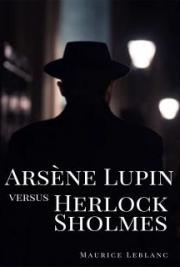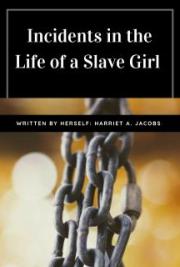12. The Fugitives
"Newspaper pictures seldom look like the person they represent," asserted Lawrence Macey nonchalantly.
Constance Dunlap looked squarely at the man opposite her at the table, oblivious to the surroundings. It was a brilliant sight in the great after-theater rendezvous, the beautiful faces and gowns, the exquisite music, the bright lights and the gayety. She had chosen this time and place for a reason. She had hoped that the contrast with what she had to say would be most marked in its influence on the man.
"Nevertheless," she replied keenly, "I recognize the picture--as though you were Bertillon's new 'spoken portrait' of this Graeme Mackenzie."
She deliberately folded up a newspaper clipping and shoved it into her hand- bag on a chair beside the table.
Lawrence Macey met her eye unflinchingly.
"Suppose," he drawled, "just for the sake of argument, that you are right. What would you do?"
Constance looked at the unruffled exterior of the man. With her keen perception she knew that it covered just as calm an interior. He would have said the same thing if she had been a real detective, had walked up behind him suddenly in the subway crush, had tapped his shoulder, and whispered, "You're wanted."
"We are dealing with facts, not suppositions," she replied evasively. Momentarily, a strange look passed over Macey's face. What was she driving at--blackmail? He could not think so, even though he had only just come to know Constance. He rejected the thought before it was half formed.
"Put it as you please," he persisted. "I am, then, this Graeme Mackenzie who has decamped from Omaha with half a million--it is half a million in the article, is it not?--of cash and unregistered stocks and bonds. Now what would you do?"
Constance felt unconsciously the shift which he had skilfully made in their positions. Instead of being the pursuer, she was now the pursued, at least in their conversation. He had admitted nothing of what her quick intuition told her.
Yet she felt an admiration for the sang-froid of Macey. She felt a spell thrown over her by; the magnetic eyes that seemed to search her own. They were large eyes, the eyes of a dreamer, rather than of a practical man, eyes of a man who goes far and travels long with the woman on whom he fixes them solely.
"You haven't answered my hypothetical question," he reminded her.
She brought herself back with a start. "I was only thinking," she murmured. "Then there is doubt in your mind what you would do?"
"N--no," she hesitated.
He bent over nearer across the table. "You would at least recall the old adage, 'Do unto others as you would that they should do unto you'?" he urged.
It was uncanny, the way this man read her thoughts.
"You know whom they say quotes scripture," she avoided.
"And am I a--a devil?"
"I did not say so."
"You hinted it."
She had. But she said, "No, nor hinted it."
"Then you did not MEAN to hint it?"
She looked away a moment at the gay throng. "Graeme Mackenzie," she said, slowly, "what's the use of all this beating about? Why cannot we be frank with one another?"
She paused, then resumed, meditatively, "A long time ago I became involved with a man in a scheme to forge checks. I would have done anything for him, anything."
A cloud passed over his face. She saw it, had been watching for it, but appeared not to do so. His was a nature to brook no rivalry.
"My husband had become involved in extravagances for which I was to blame," she went on.
The cloud settled, and in its place came a look of intense relief. He was like most men. Whatever his own morals, he demanded a high standard in her. "We formed an amateur partnership in crime," she hurried on. "He lost his life, was unable to stand up against the odds, while he was alone, away from me. Since then I have been helping those who have become involved, on the wrong side, with the law. There," she concluded simply, "I have put myself in your power. I have admitted my part in something that, try as they would, they could never connect me with. I have done it because--because I want to help you. Be as frank with me."
He eyed her keenly again. The appeal was irresistible.
"I can tell you Graeme Mackenzie's story," he began carefully. "Six months ago there was a young man in Omaha who had worked faithfully for a safe deposit company for years. He was getting eighty-five dollars a month. That is more than it seems to you here in New York. But it was very little for what he did. Why, as superintendent of the safe deposit vaults he had helped to build up that part of the trust company's business to such an extent that he knew he deserved more.
"Now, a superintendent of a safe deposit vault has lots of chances. Sometimes depositors give him their keys to unlock their boxes for them. It is a simple thing to make an impression in wax or chewing gum palmed in the hand. Or he has access to a number of keys of unrented boxes; he can, as opportunity offers, make duplicates, and then when the boxes are rented, he has a key. Even if the locks of unrented boxes are blanks, set by the first insertion of the key chosen at random, he can still do the same thing. And even if it takes







